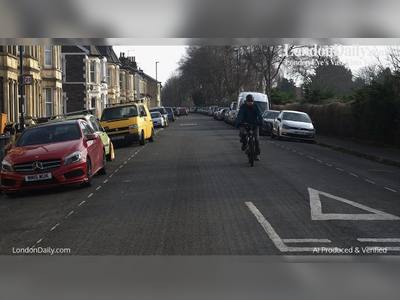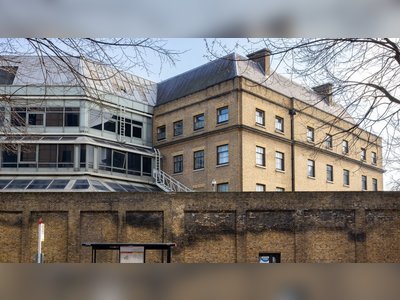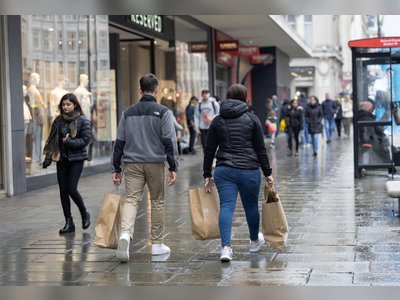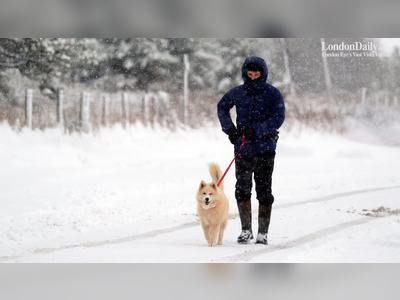UK Records Coldest Night of Autumn as Sub-Zero Conditions Sweep the Country
Temperatures plunge to national lows, snow and ice trigger health alerts and transport disruption
Britain recorded its coldest night of the autumn so far as temperatures plunged to sharp lows and snow and ice swept across large parts of the United Kingdom.
The mercury dropped to about minus 12.6 °C in Scotland, marking the lowest November nighttime temperature in around fifteen years, while Wales, Northern Ireland and England saw lows down to around minus 7 °C.
The severe drop prompted cold-health alerts: the United Kingdom Health Security Agency issued amber warnings for parts of northern England, covering the North West, North East and Yorkshire and Humber, and yellow alerts for the rest of the country.
The warnings emphasise increased risks for older people, those with health conditions and the increased pressure on health and social care services amid the freeze.
Snow and ice caused major disruption.
In Scotland and parts of northern England, several inches of snow fell, schools were closed en masse—more than a hundred in Scotland alone—roads were blocked, vehicles abandoned and power cuts reported.
A yellow ice warning was in place in the north-east of England while rail and road travellers were urged to check journeys.
Weather-services data show the lowest recorded temperatures in each constituent nation overnight: minus 12.6 °C in Tomintoul, Scotland; minus 6.7 °C at Shap, England; minus 7.2 °C in Swyddffynnon, Wales; and minus 6.0 °C in Katesbridge, Northern Ireland.
The cold spell is driven by northerly Arctic-air influx under a high-pressure ridge, with winds easing and allowing overnight readings to plunge.
The cold snap is expected to ease over the weekend as milder, wetter and windier weather returns, with daytime highs of roughly 3-8 °C. Yet the immediate impact on vulnerable and elderly populations, transport networks and energy supplies remains acute, especially in rural and snow-hit regions.
Authorities and charities urged people to check on older or isolated neighbours, ensure adequate heating, prepare for icy surfaces and travel only if essential.
With the system already showing signs of strain, the first major wintry blast of the season has arrived and exposed ladders of vulnerability across the United Kingdom.
The mercury dropped to about minus 12.6 °C in Scotland, marking the lowest November nighttime temperature in around fifteen years, while Wales, Northern Ireland and England saw lows down to around minus 7 °C.
The severe drop prompted cold-health alerts: the United Kingdom Health Security Agency issued amber warnings for parts of northern England, covering the North West, North East and Yorkshire and Humber, and yellow alerts for the rest of the country.
The warnings emphasise increased risks for older people, those with health conditions and the increased pressure on health and social care services amid the freeze.
Snow and ice caused major disruption.
In Scotland and parts of northern England, several inches of snow fell, schools were closed en masse—more than a hundred in Scotland alone—roads were blocked, vehicles abandoned and power cuts reported.
A yellow ice warning was in place in the north-east of England while rail and road travellers were urged to check journeys.
Weather-services data show the lowest recorded temperatures in each constituent nation overnight: minus 12.6 °C in Tomintoul, Scotland; minus 6.7 °C at Shap, England; minus 7.2 °C in Swyddffynnon, Wales; and minus 6.0 °C in Katesbridge, Northern Ireland.
The cold spell is driven by northerly Arctic-air influx under a high-pressure ridge, with winds easing and allowing overnight readings to plunge.
The cold snap is expected to ease over the weekend as milder, wetter and windier weather returns, with daytime highs of roughly 3-8 °C. Yet the immediate impact on vulnerable and elderly populations, transport networks and energy supplies remains acute, especially in rural and snow-hit regions.
Authorities and charities urged people to check on older or isolated neighbours, ensure adequate heating, prepare for icy surfaces and travel only if essential.
With the system already showing signs of strain, the first major wintry blast of the season has arrived and exposed ladders of vulnerability across the United Kingdom.









